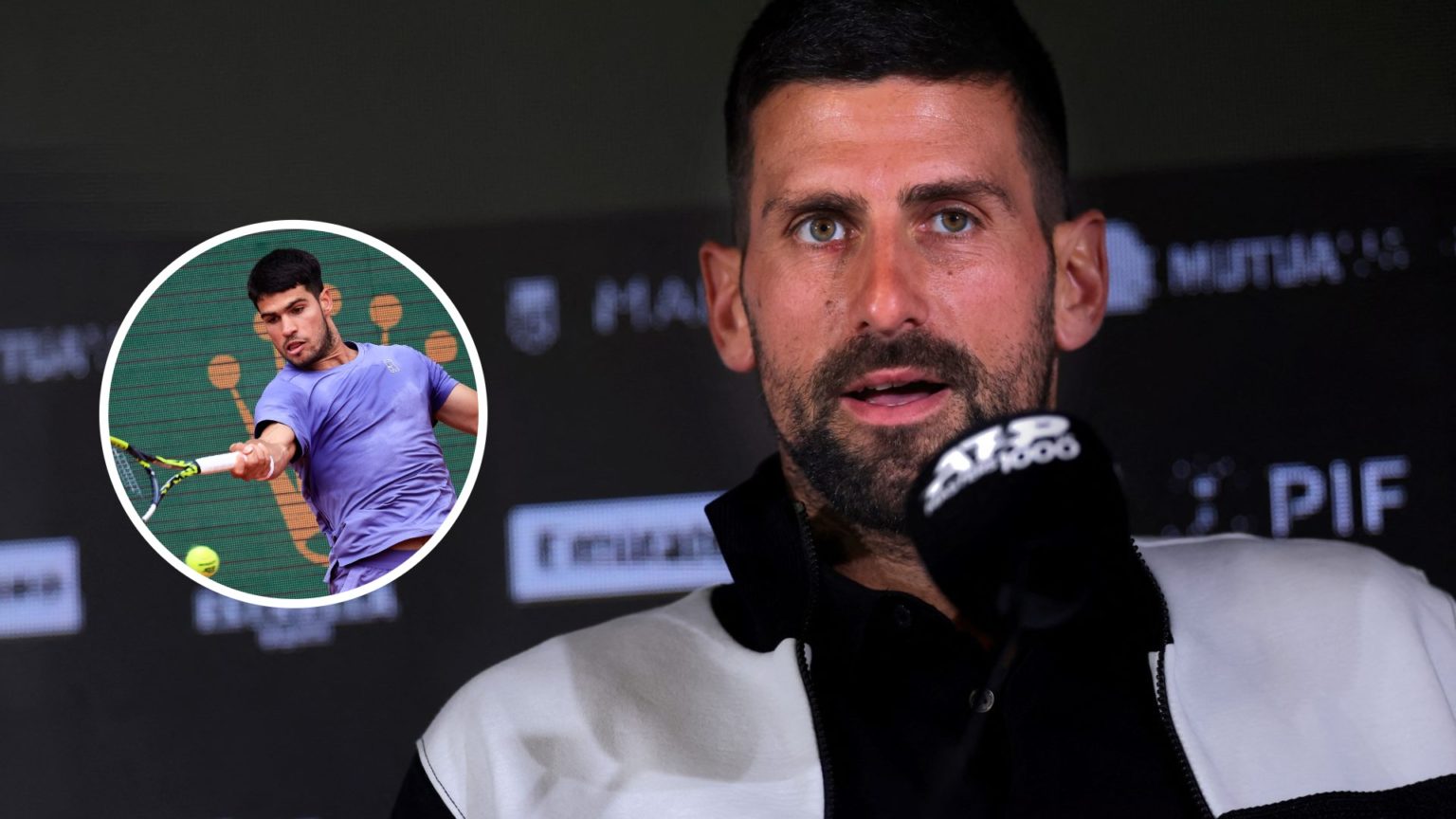
In the high-stakes world of professional tennis, where mental fortitude is as critical as physical prowess, a new Netflix documentary has sparked conversation among the sport’s elite. Carlos Alcaraz, the 21-year-old Spanish prodigy, laid bare his inner struggles in Carlos Alcaraz: My Way, a three-part series chronicling his electrifying 2024 season. His candid admission of feeling “suffocated” by the relentless demands of tennis has raised eyebrows, prompting a thoughtful response from Novak Djokovic, the 24-time Grand Slam champion and one of the game’s enduring legends.
Alcaraz’s documentary offers an unfiltered glimpse into his meteoric rise, capturing the highs of his Channel Slam—consecutive victories at Roland Garros and Wimbledon—and the lows of a heartbreaking Olympic final loss to Djokovic. But it’s his raw honesty about the mental toll of the sport that has ignited debate. “I feel suffocated at times,” Alcaraz confessed, describing the grueling schedule that often leaves him yearning for breaks to reconnect with his family and friends in Murcia, Spain. This vulnerability, coupled with his admission that he prioritizes happiness over robotic dedication, has drawn both admiration and scrutiny.
Djokovic, speaking at a recent media briefing, addressed Alcaraz’s remarks with empathy and insight. “I understand that it’s a difficult word, that feeling of being ‘locked’ by tennis or life itself… It’s not easy,” he said, acknowledging the punishing length of the tennis season. “It allows you to do something you love, but it also exhausts you. I understand why he said that, maybe it’s too strong a word.” His measured response reflects a veteran’s perspective, one forged through decades of navigating the same pressures Alcaraz now faces. At 37, Djokovic knows the cost of greatness, having built a career on unparalleled discipline and resilience.
The documentary delves into Alcaraz’s unconventional approach, highlighting moments that clash with traditional expectations. After a crushing 2023 French Open semifinal loss to Djokovic, where nerves and cramps derailed him, Alcaraz jetted off to Ibiza for a three-day party marathon. “I went there to have a blast,” he admitted, grinning as he recounted the escapade. Defying his team’s concerns, he returned to win Queen’s and Wimbledon, proving that his unorthodox methods can yield spectacular results. Yet, his coach, Juan Carlos Ferrero, offered a stark counterpoint. “He has a different way of understanding work and sacrifice,” Ferrero said, questioning whether Alcaraz’s carefree attitude could sustain a quest to rival Djokovic’s historic achievements. “If you want to be the greatest player in history, you have to be a slave to the game,” he added, a sentiment that underscores the tension between Alcaraz’s desire for balance and the sport’s relentless demands.
Alcaraz’s journey is a study in contrasts. On the court, he’s a magician, wielding a devastating drop shot and an infectious passion that electrifies crowds. Off the court, he’s a 21-year-old craving normalcy—time to watch soccer, relax with friends, or attend a Formula 1 race. His family, portrayed as a grounding force, plays a pivotal role. Unlike the stereotypical “tennis parents,” his father, Carlos Sr., deliberately stepped back from coaching, allowing Alcaraz to forge his path with Ferrero’s guidance. “I want to do it my way,” Alcaraz declared, a mantra that defines his ambition to emulate the Big Three—Djokovic, Nadal, and Federer—while staying true to himself.
Djokovic’s acknowledgment of Alcaraz’s struggles highlights a broader truth about tennis: the sport demands sacrifices that can feel suffocating, even for its brightest stars. Alcaraz’s recent withdrawal from the Madrid Open due to muscle injuries, attributed to a “really tight schedule,” underscores the physical toll of his ambition. Yet, his four Grand Slam titles, earned before his 22nd birthday, signal a talent capable of redefining the game. As he navigates the pressures of being hailed as the successor to the Big Four, Alcaraz’s openness in My Way offers fans a rare window into the human behind the champion.
The tennis world now watches with bated breath. Will Alcaraz’s pursuit of happiness coexist with his dream of surpassing Djokovic’s records? Can he balance the sport’s grueling demands with the joy that fuels his brilliance? Djokovic, ever the pragmatist, seems to believe it’s possible, even if the word “suffocated” lingers as a stark reminder of the cost. As Alcaraz carves his path, one thing is clear: his story, told with unflinching honesty, is reshaping how we understand the price of greatness in tennis.
Leave a Reply